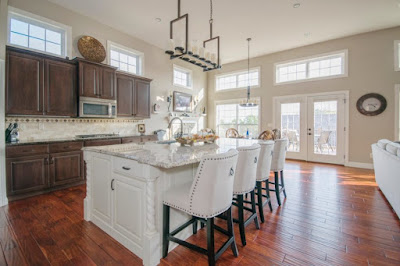What to Repair in your Home Before you List
A lot of money goes into buying a new house so it is understandable if a seller feels hesitant investing even more money to fix up their current house prior to selling. However, sellers may not realize that some of the issues they live with everyday and consider minor, such as the hallway light switch or the kitchen sink that has plumbing issues, may actually be considered major to home buyers. These issues may even prevent buyers from making an offer on a home or making a lower offer. It’s crucial to keep your house presentable and in good shape before you list it on the market. That being said, read on to find out what repairs you might want to consider before you list on your house on the market.
Roof Problems
A roof is one of the most important components of a home, protecting all that is underneath. Additionally, roofs are major expenses to replace. Therefore, it is imperative to keep the roof well maintained and free of damage and leaks. Issues like water and sun damage, clogged gutters, and rotting will lead to bigger issues if not fixed timely. Tending to these items immediately will help prevent further damage and help present the home well. Poor Maintenance Minor issues such as damaged flooring, paint chipping, and old carpeting can be easily fixed to give your home a renovation. Your goal is to make your home appealing so start by replacing anything that is heavily worn and adding a fresh coat of paint. And these minor upgrades can be inexpensive because you’ll most likely see a return on investment.
Plumbing
Plumbing problems can result in minor or major issues and it is very important to take care of these issues right away as they can lead to further problems. Bigger problems such as water damage can lead to mold and easy fixes to leaky faucets can be replaced inexpensively.
Wiring Electrical problems can cause a wide variety of problems. Smaller fixes such as faulty switches, missing wire nuts, or damaged junction boxes can be fixed with a good electrician. Replacing a circuit breaker might be needed if they don’t match the amperage of your home. Some repairs are obvious to see and others aren’t so it’s a good idea to run a pre-inspection of your house before listing. After, review it with an Agent like me because I can advise you on which ones are the first priority.
Every property is different and each home presents it's own individual attention before placing it on the market. To get your homes true value call me today to get things started.








